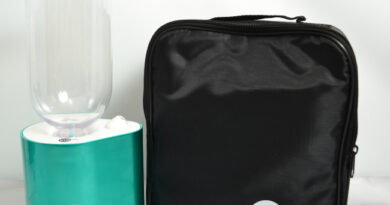
Tourette Syndrome: Symptoms and Remedies
Tourette syndrome is one of the toughest conditions to experience, and to cure. The problem with the syndrome is that it is very difficult to diagnose, and it can be even tougher to treat. The good news is that medical advancements are being made each year, and doctors are always looking for innovative ways to treat such conditions. Here is a look at the symptoms and remedies associated with Tourette syndrome.
Diagnosis
Tourette syndrome is a tough condition to diagnose, because there is no specific test to say whether a patient has it or not. Instead, it is about assessing the patient’s overall health and looking at the symptoms they have been showing. Among the criteria that a doctor would use to diagnose Tourette syndrome include motor and vocal tics, which occur several times a day. If the tics begin before the age of 18, it is even more likely. And if the tics persist even when all medications are stopped, it is an even bigger tell.
Causes
Doctors are still not sure about what triggers Tourette syndrome in the body. However, history has shown us that some risk factors are present. Two of the risk factors are family history and the person’s sex. Those who have a history of Tourette syndrome or tics in the family are more likely to pass on the condition to their kids. And men are more likely to have the condition than women.
Symptoms
The main symptom that is associated with Tourette syndrome is tics. These are sudden and brief movements that a person cannot control. They are the major sign, and they can be very minor or incredibly severe.
There are two major types of tics, simple and complex. The simple tics are brief and repetitive movements that go away after a little while. More complex tics involve distinct and coordinated patterns of several muscle groups that take a while to stop.
For instance, eye blinking or head jerking is a simple tic, while obscene gesturing or stepping in a specific pattern would be a complex tic.
Therapy
There are two approaches that doctors will take with Tourette syndrome. The first approach involves therapy, where a patient is put through behavior therapy and neuro physiotherapy to see if it can help with the tics and other syndromes. Aside from helping patients develop the personal skills to function even with these tics, there is also the possibility that something like hypnosis could help patients. It is still not tested to a large extent, but many people report success with that method.
Medication
Medications that can lower the level of dopamine production in the body are said to help with the tics. Botox injections can also help if the tics are in a specific muscle group. ADHD medications have been given to children who may be suffering from Tourette syndrome, while antidepressants are also said to help the symptoms of sadness or anxiety that someone may feel.
Tourette syndrome is a very complex condition, which is why it is so difficult to find a cure. But there are medications and therapies that can help to manage and eliminate the symptoms.








